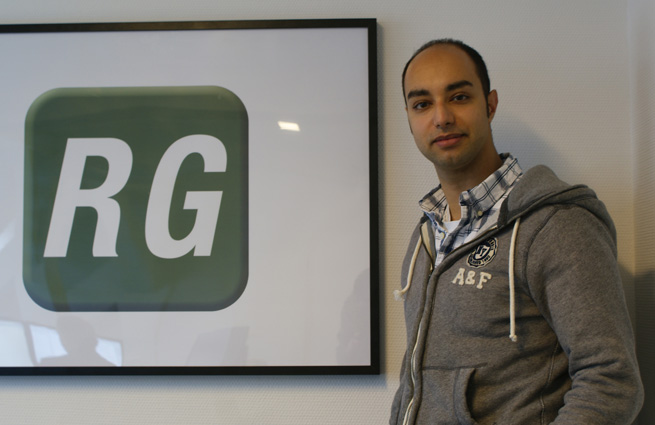 ResearchGate, a social network for scientists to share knowledge and research, announced Wednesday it has raised its second round of funding, led by Founders Fund partner and PayPal co-founder Luke Nosek.
ResearchGate, a social network for scientists to share knowledge and research, announced Wednesday it has raised its second round of funding, led by Founders Fund partner and PayPal co-founder Luke Nosek.
“ResearchGate is a full-blown network for scientists and researchers to connect, share and collaborate; they can login through their Facebook accounts as well,” a representative for the company wrote in an email to VentureBeat.
Co-founder Dr. Ijad Madisch (pictured above) got the idea for ResearchGate while studying for his PhD. He wanted a way to connect with other science students to collaborate and share knowledge. Scientists can post information and reports, connect with their peers to exchange ideas, and collaborate on problems. The social network has been up and running for four years now, with 1.3 million members from the scientific community.
What’s a scientist to do when they want to connect with a colleague and share research? They can’t just go Facebook or Twitter to share their guarded secrets, right? Not so fast.
AI Weekly
The must-read newsletter for AI and Big Data industry written by Khari Johnson, Kyle Wiggers, and Seth Colaner.
Included with VentureBeat Insider and VentureBeat VIP memberships.
While ResearchGate boasts an ad-free way to connect with scientists and prohibits members from disclosing information shared on the site with third parties, it’s not exactly more popular for scientists than mainstream social networks. As Microsoft’s Dr. Mark Drapeau points out in an Huffington Post opinion piece, “There have long been scientists on Facebook and LinkedIn and connecting via other websites like Scienceblogs.”
Drapeau makes a good point that scientific social networks like ResearchGate are just “add-ons” to how scientists do their work and don’t replace peer review processes. While these networks might give scientists an outlet to discuss ideas, many have come and gone, never catching on very well.
ResearchGate acts as part social network, part research sharing platform. Free research sharing isn’t new; sites like ArXiv and PLoS allow researchers to publish findings for free, without lengthy review processes from scientific journals. And of course, social networks Twitter, Facebook, LinkedIn, and Google+ are so widespread that many scientists already belong to them.
More scientific-specific competitors of ResearchGate include Scitable, UniPHY, and Labroots to name a few. ResearchGate may have one of the sleeker-looking websites, but it connects scientists together just like all the rest.
ResearchGate raised its first round of institutional funding in September 2010, though the company hasn’t disclosed how much money it has received. Benchmark Capital, Accel Partners, Michael Birch, and David O. Sacks participated in this latest round. The company is based in Berlin, Germany and has more than 40 employees.
VentureBeat's mission is to be a digital town square for technical decision-makers to gain knowledge about transformative enterprise technology and transact. Learn More
